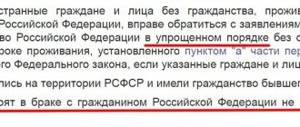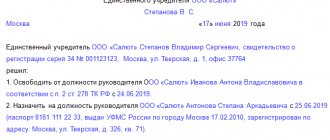Definition of funded pension
In Russia, there are several types of pensions, among which are funded ones. In addition, pension payments can be basic or insurance. It is provided that only those funds that are formed under the savings program are transferred to the legal successors of the citizen. The Civil Code reflects that the transfer of rights to savings occurs after the death of the owner.
The formation of this part of the pension is carried out because the citizen transfers his own funds to the account during his lifetime. In this case, transfers go to the pension authority or non-state pension fund. This amount includes income from various material contributions made by a person and other voluntary contributions. In particular, family capital funds can be transferred.
Is inheritance possible?
Regardless of where the funded part of the pension contributions is located, legal successors can claim to receive it after the owner passes away.
The heirs have the right to obtain rights to the following amounts:
- finances formed through the use of a citizen’s personal funds and located in the pension authority;
- accumulated funds transferred by the organization where the person worked;
- pension accruals not received by the deceased.
The legislation establishes the rule according to which savings containing the property rights of a non-pensioner are inherited. This indicates that the person has not yet reached retirement age. Inheriting funds accumulated by pensioners is allowed provided that the citizen has never received the payment due to him.
IMPORTANT !!! If a citizen received the accumulated funds even once, he does not have the right to exercise this right a second time. This also applies to the situation when there are savings left in the recipient’s depositor’s account. In relation to pension savings, there is another question that arises in a situation where a person passes away, and the amount due to him this month is not paid. Funds located in the account are not included in the estate, however, the unpaid benefit for the month can be received.
The right to receive these funds passes to persons who are closely related to the deceased. In this case, the main condition that needs to be taken into account is the cohabitation of the heirs and the deceased. These persons must live together at the time of the citizen’s death.
Persons deprived of the ability to work can count on receiving such funds. This applies to those citizens who were in the full care of the deceased. In that case, the place of residence of the heirs does not matter.
How pension savings are paid
It is worth understanding that the registration of an inheritance of pension savings and their subsequent payment are carried out only after submitting an appropriate application to the pension fund. Within six months from the date of death of the testator, the heirs must contact the territorial branch of the Pension Fund of Russia. After this period, relatives will be able to restore the right to apply for inheritance payments only through judicial proceedings.
The pension fund makes a decision on an additional payment no later than July 31 of the year following the year of death of the citizen, as specified in the legislative framework. Heirs should receive copies of all decisions on additional pension payments by mail. The deadline for accrual of funds is August 15 of the corresponding year.
The power of the past: how nostalgia can help you resist negative emotions
Open the door during a flight: what airplane passengers continue to believe
Accountant, driver and other professions may disappear in the near future
A citizen can enter into contractual relations under two schemes offered by NPFs: fixed-term and lifelong.
Successors
Relatives of persons born after 1967 can count on receiving an inheritance that includes pension savings. Those born before this time do not have the opportunity to accumulate funds. Therefore, in this case there will be no inheritance object.
It is possible to inherit a pensioner’s capital using two grounds:
- a statement drawn up by the deceased, which he submitted to the pension authority during his lifetime;
- on the basis of the law.
The citizen submits the application to the Pension Fund in the place where he lives. The act must specify to whom and in what amount funds must be paid after the death of a person. At its core, the document is considered as an analogue of a testamentary act. You can indicate relatives or other persons in the application. The content of the document depends on the will of the originator.
ATTENTION !!! In a situation where there is no statement reflecting the will of the deceased, the distribution of the inheritance between legal successors occurs on the basis of current legislation. Heirs may include children or parents, spouses and other relatives. Persons who are distantly related to the deceased acquire the right to property in the case where there are no first-rank heirs. The amount to be inherited is divided among all citizens in the same order.
Certain provisions apply to the inheritance of savings that are formed through the use of family capital. If a woman who has invested capital in savings dies, then the father of the children or their adoptive parents will inherit the finances. If there is no father, then the property can pass to a minor citizen or children, children who have reached the age of 18. Inheritance occurs until the child reaches a certain age category. Payment is made until the age of 23 or until the person graduates from an educational institution. Other relatives do not have rights to inherit these funds.
Lifetime pension scheme
The definition of a pension scheme assumes that a pension will be accrued to a citizen for the rest of his life immediately after retirement. The inheritance mechanism in this case is not particularly different from that used when inheriting a funded state pension.
Heirs can count on receiving funds only if the testator did not live to see retirement and the appointment of a pension. If the pension has already been assigned, then the inheritance cannot take place.
Conditions
It will be possible to receive an inheritance that includes pension savings if certain conditions are met.
These include:
- registration of a citizen in the compulsory pension insurance system;
- there must be funds in the deceased’s account;
- the death of the testator occurred before the citizen reached retirement age;
- a citizen going on a well-deserved retirement, but he did not formalize the payment from his savings.
With the advent of 2021, the age category for citizens to retire has been raised. Males will now be required to work until 65 years of age, and for women until 60 years of age.
Inheriting a pension
Inheritance of pension payments is possible in several ways. The first involves the testator’s independent choice of the person to whom the savings will be transferred in the event of his death. The second implies situations in which such a decision was not made. In this case, payments are made in accordance with current civil legislation.
Demand for suburban mortgages among Russians has increased three and a half times
How to make a decorative grille for a battery yourself: an easy way
iPhone 13 may have a much larger camera than the iPhone 12
But at the same time, other standards specified in other documents are taken into account. For example, first-line heirs are spouses and children.
How to get savings?
You will need to take certain actions to obtain rights to the inheritance mass.
Among the main steps that a citizen will need to take:
- collection of necessary documentation;
- visit to the pension authority;
- sending documents to the Pension Fund.
A person needs to contact the pension authority with which the person has an agreement. You can send the required papers to the pension authority through a personal visit or by mail. It will not be possible to transfer pension savings automatically. In order for employees of the pension authority to transfer funds, they will need to contact a specific organization.
What kind of pension can be passed on by inheritance?
Pension in the Russian Federation is cash payments due to persons who have reached retirement age. With the exception of insurance and state pensions, there is also a funded part of the pension. It refers to pension savings arising from persons born in 1967 and younger. Its formation is carried out through contributions. According to the legislation of the Russian Federation, this part of the pension is inherited and transferred to the relatives of the deceased.
Unlike funded pensions, state or insurance pensions terminate after the death of a citizen and are not transferred to his legal successors.
The nature of the procedure for registering a pension as an inheritance is exclusively declarative. The pension recipient can contact the state or non-state pension fund and indicate which of the heirs will receive pension savings.
It became known in which areas of activity the most passionate people work
Insurers voiced what worries Russians most
Poor sleep linked to inability to concentrate: new study
An application for the transfer of pension savings has the force of a testamentary disposition and is equivalent to an official will. Thanks to this, pension savings can be received not only by relatives, but also by third parties specified in the will. The final decision is made by the copyright holder, who is the owner of pension savings.
Required papers
To assign payments from pension savings or refuse them, heirs will need to contact the relevant authority. This can be done personally or with the help of a trusted person. You must take documents with you in originals and copies. Such papers must confirm the existence of family ties between the applicant and the deceased person.
When visiting the pension authority you will need to collect:
- a statement prepared in a certain form;
- a document through which the identity of the applicant is verified;
- SNILS in relation to the deceased;
- an act certifying the death of a person;
- documentation that helps confirm the presence of family ties between the citizen and the deceased.
In addition to the listed acts, sometimes it is necessary to collect additional documents. When an application is drawn up by a person representing the interests of the applicant, he must, in addition to the specified list, be accompanied by identification documents and a duly certified power of attorney. If the deadline for drawing up an application is established in a judicial act, then a court decision is attached indicating the restoration of the deadline for applications.
When it comes to family capital, after the death of a woman, the father will additionally need to collect papers that confirm the existence of adoption or recognition of paternity. In addition, it is documented that the citizen was not previously deprived of rights in relation to the child and acts confirming their birth.
IMPORTANT !!! If the father died or was deprived of his rights, then it is necessary to additionally collect documentation confirming the fact of the citizen’s death. An additional document may be a decision made by a judicial authority that family rights have been revoked. When a child undergoes an educational process, a certificate from his place of study is required. This applies to a person who is of legal age.
Employees of the fund where savings are stored are checking documents aimed at confirming family ties and other facts. If the documents do not correspond to reality, the fund has the right to refuse payments. When successors of the first priority appear, the second priority is excluded from inheritance. In this case, it does not matter who submitted the application first.
When to contact?
In order to receive the required payments, the successor must fill out an application and send it to the pension authority. This must be done no later than six months from the moment the citizen died. When the deadline for filing an application has been missed, you can try to restore it through the courts.
If all requirements are met, the funds are transferred to the person who submitted the application within six months. Persons who are closely related to the deceased can fully inherit the funds accumulated by him. The main condition in this situation is that the deceased person did not apply for payments from savings. After the employees of the authorized bodies verify the information provided, funds are transferred to the applicant’s specified account number.
How to inherit pension savings
To receive the funded part of an inheritance pension, you must draw up an application and submit it to the Russian Pension Fund or NPF. The document must indicate the following:
The reason why Pankratov-Cherny decided to get married after 40 years of civil marriage
Smartphones are prohibited here: unusual rules of five ancient cities of Algeria
Motivation to participate and more: we involve employees in feedback on their work
- Name of the organization to which the application is being submitted.
- Address and passport details of the person submitting the application.
- Title of the document.
- Confirmation that the deceased person is a relative of the applicant.
- Request for transfer of funds and indication of the method of transfer.
- Date of application and signature.
Pension fund employees review the submitted application within five days. Based on the results of the inspection, one of three decisions is made: the document is returned to correct errors, payments are refused, or consent is given to them.
The redemption portion of the pension—the amount payable in the event of early repayment of an agreement concluded with a non-state pension fund or the organization being declared bankrupt—is not inherited.









